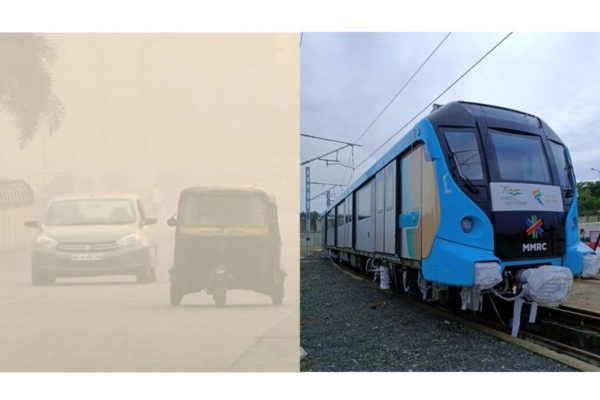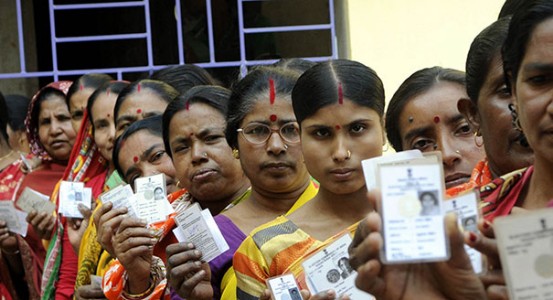Aarey Carshed and Environmentalism
What is an ‘Environment’? The Cambridge dictionary meaning of the word ‘environment’ is ‘the air, water, and land in or on which people, animals, and plants live.’ Similarly, Oxford Learner’s Dictionaries define the ‘environment’ as ‘the natural world in which people, animals, and plants live.’
Total Views | 105
In the last few months, there has been an increase in the number of people who call themselves environmentalists, especially in Mumbai. Some of them might really be, but certainly, there is a scope for doubt if all of them really are! Naturally, this environmentalism is mainly limited to trees on the plot where a carshed for metro line 3 is proposed. The range of the word ‘environment’ in fact allows a person to act upon his/her’s daily living; from what one eats to which clothes one wears.

What is an ‘Environment’?
The Cambridge dictionary meaning of the word ‘environment’ is ‘the air, water, and land in or on which people, animals, and plants live.’ Similarly, Oxford Learner’s Dictionaries define the ‘environment’ as ‘the natural world in which people, animals, and plants live.’
These two definitions are sufficient to understand that, the ‘environment’ doesn’t necessarily mean only ‘plants’. There are several other definitions available on Google, and they all point to one important factor ‘surrounding’. Hence it is safe to conclude that the ‘environment’ is a larger term and not restricted to plants only. In the case of Aarey, we see concern only limited to cutting down trees. Of course, with reference to the greenhouse effect, the global warming presence of trees is most important, but along with that, there are several other factors which one mustn’t be neglecting. In the case of cities developing a robust network of mass transit is one of the best available options to protect the environment.
Also Read: The sham called 'Lungs of Mumbai'
Mass Transit and Reduction in Green House Emission
Although greenhouse emission occurs due to various reasons and ‘trees’ are important in the war against global warming; improving mass transit or public transport network provides a simple yet powerful remedy for cities. In an article in The New York Times published on March 25, 2021, this was suggested as ‘relatively a simple way for cities to lower their greenhouse gas emissions…’ In cities like Mumbai, the number of private cars is increasing day by day. As per the Times of India report published on March 6, 2020, the density of vehicles in Mumbai has increased by 15 times and has become1,900/km. This is a very serious number. Every single vehicle added on road not only increases the carbon emission but also becomes a reason for a marginal rise in oil imports at the cost of precious foreign exchange. It also increases traffic congestion. More traffic congestion also leads to more carbon emissions. The best way to avoid it is the development of public transport system and also increase the last mile connectivity, which can sustain a load of traffic in the cities. On the website of the Institute for Transportation & Development Policy (ITDP) in an article published on November 25, 2015, ‘Why Transportation Is Critical at the Paris Climate Summit’ it is quoted from the report of the International Energy Agency that, greenhouse gas emission will increase by 120% from 2000 to 2050.
The importance of having public transport is so much that, it was even considered in Paris agreement. There are various articles available on the internet which highlight the importance of public transport to reduce carbon emissions. Just, for example, a bus takes less space on roads to carry 30-40 passengers. Whereas we might need 5-10 cars to carry the same amount of people. Similarly, a metro would require less amount of energy to transport thousands of people as compared to private vehicles. One of the largest ‘environmentalist’ groups in the world Fridays For Future demands that the Paris agreement must be followed. Along with these facts, Mumbai is also a part of a group called C40. This group includes cities which are up against climate change. Their action plans are designed by keeping cities in mind. Therefore, it deals with climate change challenges faced by urban areas. On their website, one can easily find articles focusing on public transportation.
Also Read: Save Aarey from environ’mental’ists
It is time for environmentalists to wake up from old beliefs. In the previous article, the compensatory tree plantation was explained. Many citizens should know that strengthening, and promoting the use of the mass transit system itself is an environment-friendly move. In fact, as stated earlier, it is the simplest way available in cities and metropolitan areas like Mumbai. Secondly, opposing a project which is under construction phase is waste of time and money. As per some recent reports, Alstom even had delivered four cars of the line. Rather, environmentalists can impact way better those projects which are still on paper or at the very early stage of construction. There are many suggestions which could be possibly implemented on those projects. Ex. Metro lines 11, 12, 13, and 14 are still proposed lines. If environmentalists really bother about the environment, then these lines provide them an actual opportunity to change something, if it is damaging to the environment. This is what, environmentalists need to understand.








